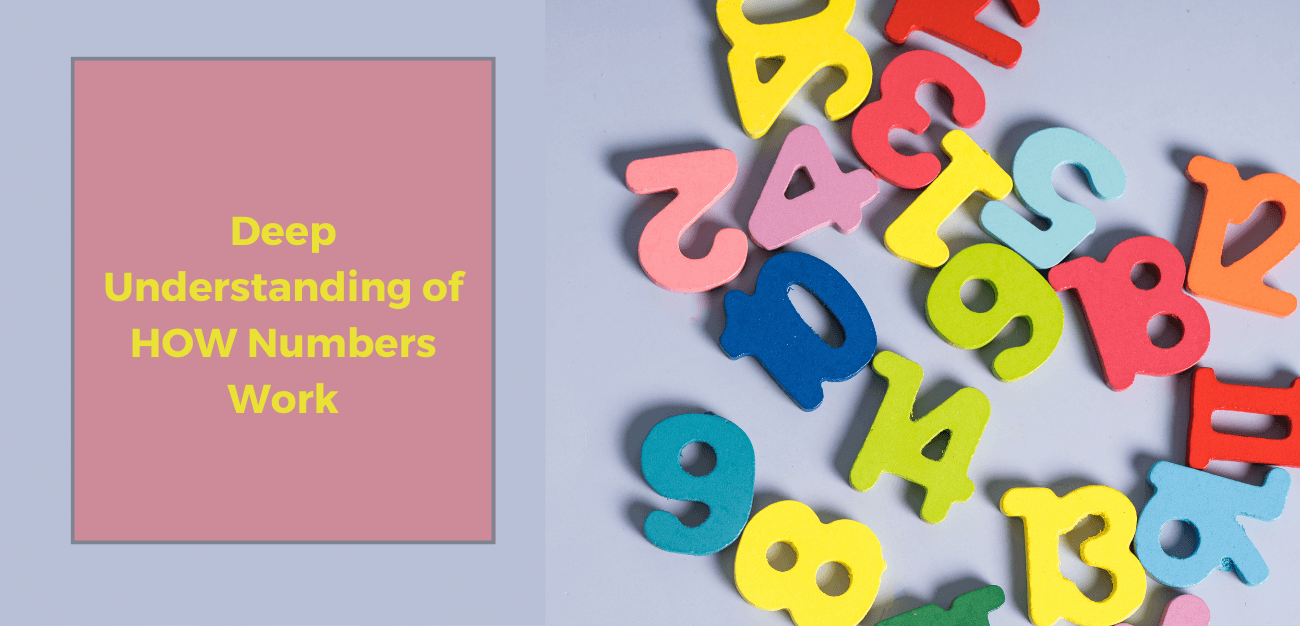If you’ve ever wanted to take an in-depth dive into understanding numbers, then learning about “number sense” is the perfect way to do it. With a focus on developing your own understanding of how numbers work and relate to each other, number sense is not just a key math concept that helps improve mathematical proficiency—it also provides insight into teaching practices and can help unlock deeper levels of problem-solving. This can be invaluable when helping your child learn mathematics.
Through this blog post, we aim to provide you with both an introduction and a deep exploration of what number sense really means so you can develop your skills around working with numbers efficiently and effectively. At Dropkick Math Academy, our math tutoring services offer programs focused on understanding number sense, and we include the parent/guardian. So, if you are interested in learning with your child, check out our math tutoring programs today!
Understanding Number Sense
Having number sense is an important skill for students to have in order to become competent in math. Number sense involves understanding the number of items in a certain set and being able to interpret that number without actually counting all of the items. It also involves understanding number quantity, comparing and organizing numbers, simple calculations, recognizing mathematical patterns, and problem-solving.
Students who have strong number sense can quickly solve problems because they understand relationships among quantities and operations without laborious number-crunching. It provides them a deeper level of math intuition which is essential for success with more advanced topics like algebra, calculus, geometry and beyond.
Explaining Number Sense To Your Child
Explaining number sense to a child can be an important part of helping them understand math. To help explain number sense, start by having your child identify the number of items in a group. It could be as simple as counting the number of chairs in the room or counting their fingers. Once they have identified the number, ask questions such as “If I gave you two more chairs, how many would there be?” This helps develop an understanding of addition and subtraction as well as number recognition.
Providing hands-on activities that involve moving objects like coins, or math manipulatives can help them visualize what different numbers look like. Doing this can give them a better foundation for developing number sense in other areas such as basic operations and fractions.
Number Sense Throughout School
Number sense is important for elementary students to understand and grow with. This can range from counting, number properties and operations, number patterns and relationships, estimation, number comparisons, fractions, and more over the various grades. As they progress through to grades 4 to 9 they learn to extend their understanding of whole numbers to rational numbers such as decimals, percentages and rational fractions, as well as irrational numbers.
Number sense is only going to become increasingly important in our rapidly evolving world, where mathematical knowledge is vital for success. It is, therefore important for young learners to develop a strong number sense foundation early on.
The Importance Of Number Sense
Research has recently found that many students struggle with learning math because they don’t have the underlying foundation of what the numbers really mean. Without having a deep understanding of what number sense means, they do not have the basic foundational skills and will most likely struggle in the future. However, at Dropkick Math Academy, teachers are changing the way mathematics is taught and focusing more on mastering number sense and the automaticity of facts.
Working With Parents And Students
At Dropkick Math, we understand where a student’s understanding of number sense should be. Using concrete and pictorial models and interactive guides, we can help students understand the “howmuchness” of various numbers. We take the time to work with students and their parents walking them through experiences that allow them to interpret symbolic representations of numbers.
Teaching number sense to parents alongside their children can be an invaluable part of helping them understand their student’s homework. Number sense concepts help students make number-based decisions quickly, which can be a great tool for both students and their caregivers. It includes understanding number relationships, mental calculations, and estimation, all of which can help parents more effectively guide their children throughout the learning process. Teaching number sense also allows parents to talk with their kids about the math they are working on and better understand how it relates to everyday life.
The Four Pillars Of Math
Strong number sense can help build a foundation for mathematical understanding as one of the four pillars of math. Number sense, especially in the younger grades, can help build the foundation necessary to compute and solve more complex problems as they go into older grades.
At Dropkick Math Academy, our programs focus on math’s four pillars. By mastering these four fundamental concepts, students will be able to solve any problem they encounter in math. In addition, the four pillars of math provide a strong foundation for students to build upon as they move on to higher grades. By the end of each module, students have a well-rounded foundation in arithmetic and are prepared to move on to more advanced modules.
Signs Of Trouble
Children who have trouble with number sense often show signs at an early age. Unfortunately, the pandemic caused many students to have a loss in learning over the past couple of years. Students in the younger grades have suffered a gap in mathematics as they learn number sense. As one of the four pillars of math, not understanding number sense may leave a child with a weak math pillar and can significantly impact their future math success.
At Dropkick Math Academy, we offer math tutoring that focuses on the four pillars, which get to the root of students’ misunderstandings. Instead of covering up math misunderstandings, we work from the ground up to help foster a full comprehension of number sense.
Learn more about the four pillars today and how we incorporate them into your various math tutoring programs. Your child will not only learn the math they need, but they will have fun doing it! With game-based learning, our students are eager to attend classes and stay engaged throughout the lesson. Click to learn more today!





